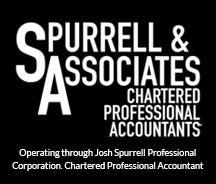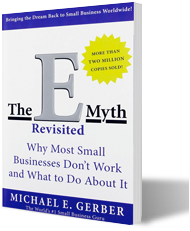Virtual CFO | Why Business Owners Should Review Balance Sheets
Entrepreneurs should get into the habit of reviewing their balance sheets on a regular basis says virtual CFO. Not only is this important because they should be able to catch errors that may exist on balance sheets for interim statements, but also business owners should be aware of the financial state of their business, in order to help them be guided to making decisions in their business that can help them grow their business, and avoid running out of money in their business. Half of all entrepreneurs fail within five years of opening their business, and 29% of those entrepreneurs say that the reason their business failed was because they ran out of money. Staying on top of their finances in order to make great business decisions is extremely important to all entrepreneurs.
While many entrepreneurs believe that they can make great decisions financially based on their income statement, virtuals CFO says itís far more advantageous for business owners to look at their balance sheets instead. The first reason is since interim statements have a higher likelihood of having errors on them, if a business owner can learn how to read their balance sheet, they will be able to easily see mistakes that can be fixed. Once those mistakes are fixed, business owners can use the information in order to make decisions in their business.
Virtual CFO also says that business owners should review their balance sheets in a six-month comparative statement. The reason this is so important is because reviewing six months at a time is going to help the business owner see if thereís any variances, or unusual highs or lows in their months. This may be due to something that happened in the business, or it could be due to an error. Being able to look into that can help business owners understand if something happened in their business, or if itís an error that needs to be fixed.
Another thing that a business owner can be aware of when there reviewing their balance statement, is that it is okay for businesses corporate tax accountant to be in the negative on interim statements says virtuals CFO. The reason for this is because corporate taxes look differently on businesses interim financial statements than they do on the businesses year end financials. If a business owner is making tax payment in instalments, itís often not worth the accountant to create a tax provision every single month in their financial statements. Virtual CFO says that itís possible to do, but itís costly. Therefore, if the business owner is making there was tax instalment payments, itís not going to show up on their financial statements until the last month of their fiscal year. Since it does not show up on their balance sheet, but a business owner is making tax payments every month, it ends up looking like the business owner is preparing the tax. When a business owners prepaying a liability, it shows up on the balance sheet as a negative number that gets larger every single month. When the tax bill comes in and is applied in month 12, and goes towards that negative amount and causes it to go back to zero.
Many business owners need to make critical financial decisions based on their financial statements says virtuals CFO. If they try to make those decisions based on their income statement, they may be making ill-informed decisions, because the most important financial information is actually on the balance sheet of the business and not on the income statement.
Business owners need to understand why they should always look at the balance sheet first says virtual CFO. There is a great likelihood that there are mistakes that exist on the interim income statement. If the business owner is able to review the balance sheet first to verify amounts, a business owner will be better able to see obvious errors. Itís important that business owners verify the correctness of the balance sheets before they make any critical financial decisions.
Business owners should also understand that looking at a six-month comparative balance sheet helps them catch errors because it will draw the business ownerís attention to any deviance is that donít make sense. These deviance is could be because of errors made on the financial statements, but virtual CFO says that it could be because bizarre things have happened in the business that caused these deviances. Itís important for business owner to verify that before they go on making important financial decisions in their business. Business owners should understand that a six-month comparative balance sheet is an extremely powerful tool.
Business owners should also understand that cash on their balance sheet is going to look different than the cash on their bank statement says virtuals CFO. The reason for this is very simple, a balance sheet is going to show any of the payments that have been made, but havenít necessarily cleared the bank account. Such as checks that have been sent out. If a business owner looks at their bank statement in order to make financial decisions, they may end up believing that they have far more money in their bank account than they actually do. If they spend more money than they actually have, they can cause bounced checks, or cause their payroll to not cash. This can be an extremely dangerous error for business owners to make.
If businesses are going to add assets to their business, they should add them to property, plant and equipment section of their balance sheets says virtual CFO. If theyíre going to do this, they should follow a couple of general rules, they should only add long-term assets that have a useful life longer than one year that have a value of over $1000. When business owners are adding their assets, they should stick to this rule of thumb, there is no point in counting assets that are lower than that in their balance sheets. For example, a business owner shouldnít worry about counting a stapler, even if it has a useful life of five or 10 years.

